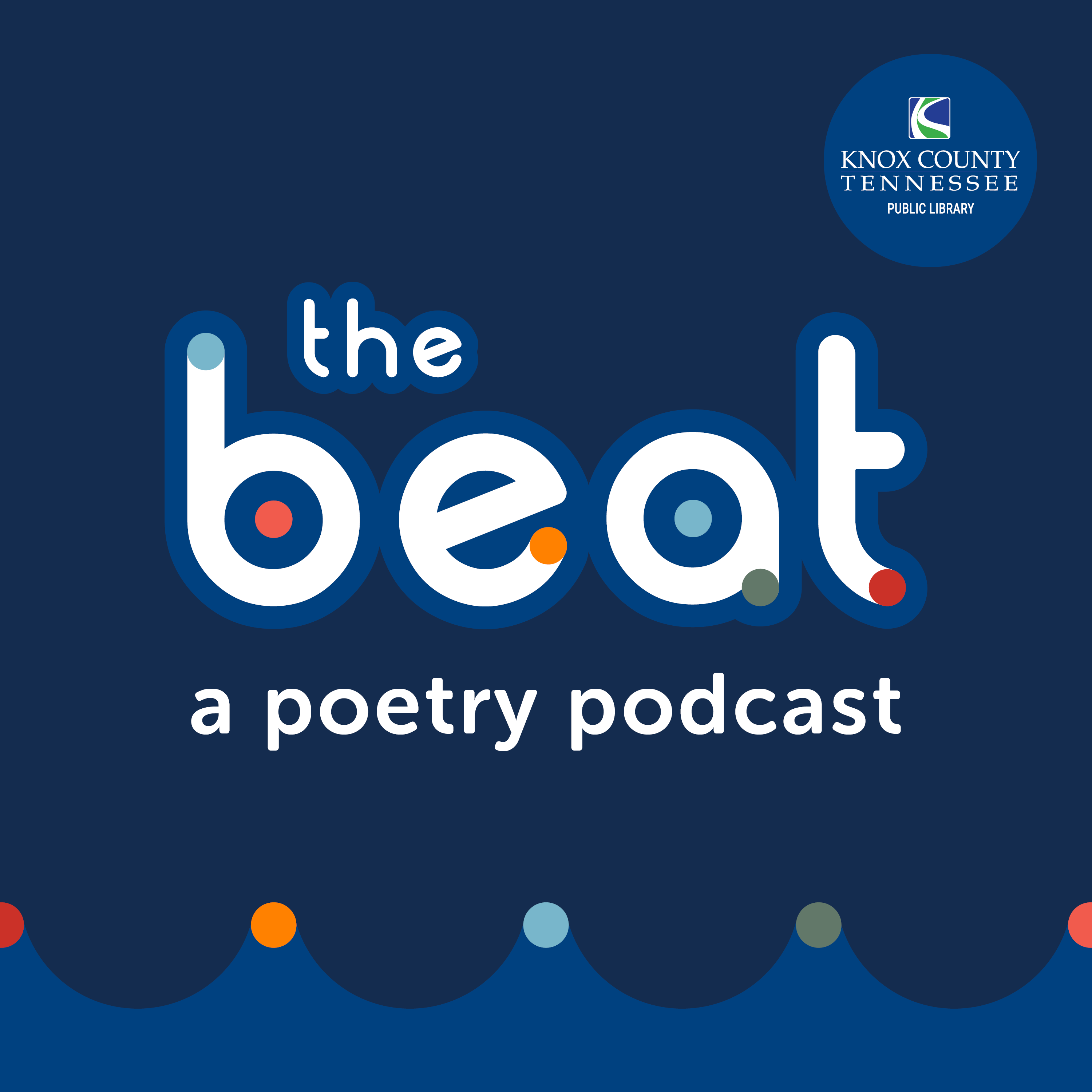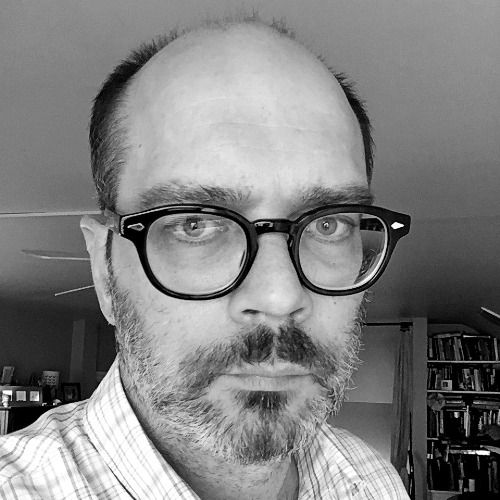Episode 10
Bruce Alford
Bruce Alford’s work has appeared in the African American Review, Imagination & Place Press, The Comstock Review, and elsewhere. He teaches poetry at Louisiana State University. Before working in academia, he was an inner-city missionary and journalist.
Links:
Transcript
Welcome to The Beat, a poetry podcast produced by Knox County Public Library. Today, we’ll hear a section from a book-length manuscript called Alford’s Devotional read by the poet Bruce Alford. Alford’s first book, Terminal Switching, focuses on various types of travel, in both a real and metaphorical sense. The same is true of the section you’re about to hear. According to the poet, this book-length poem reconfigures Christian language and imagery and focuses on “the meaning of being and moving in the world.” Here’s a section from Alford’s Devotional by Bruce Alford.
Bruce Alford:This is an accident waiting to happen.
At the end of a sanctimonious bridge,
tractor-trailers pass astonishingly near
and when the coast is clear, we dash down the highway.
We are so afraid and don’t want to be in anybody’s
way.
And people, in passing, consider our backs. Then their
faces turn backward. We run from them, and we are
scared to hold our heads up, to think of what they
think of us—nothing at all.
Because they have their love songs on inside their
cars. But I mustn’t blame their songs too much: love
makes life worth living. Even today
the sun looks down, far from a motherly place.
She shines on us from a distance.
Where is your car?
She asks more for the benefit of her audience than
for herself. We had a breakdown. Help us, we pray.
She has no pity but asks for perseverance, the only
thing that can prove our worthiness.
We look for the end of the road as though looking
for the world’s demise.
We thought it would stop before we died. Because
it keeps on getting compressed. Life persists. And we
suspect the world will continue after us, just like this train
and this traffic passing, the worldly world remains, the
way the trash in this deep canal becomes so great
that we can’t bear to look down without looking
differently. We say nothing, become nothing and
gather ground.
Nothing but action now. The old woman points, and
hell opens wide. She has the power to scorch us with
fire. Hour after hour, she hits us with the greatest
force. Who knows which way to go? We question, if
we can and wonder why at every step.
Behave as though many paths are possible. Go on at
intervals for days, without asking are we there yet?
Alan May:That was a section from Alford’s Devotional by poet, fiction, and creative nonfiction writer, Bruce Alford. He was kind enough to make this recording for us at his home in Baton Rouge, Louisiana. Alford’s work has appeared in the The Comstock Review, The African American Review, Imagination & Place Press, and elsewhere. He teaches poetry at Louisiana State University. Before working in academia, he was an inner-city missionary and a journalist. Look for Bruce Alford’s book Terminal Switching in our online catalog. Also look for links in the show notes. Please join us next time for The Beat.
Various Voices:Thank you for listening to and sharing this podcast from Knox County Public Library in Knoxville, Tennessee. Music for this podcast is by Chad Crouch. Find all our podcasts at pods.knoxlib.org, and explore life-changing resources at www.knoxlib.org. That's "knox l-i-b." Go to our "keep in touch" page to sign up for newsletters. You can also follow us on Facebook, Twitter, and Instagram. Make us your essential connection for life-long learning and information.




